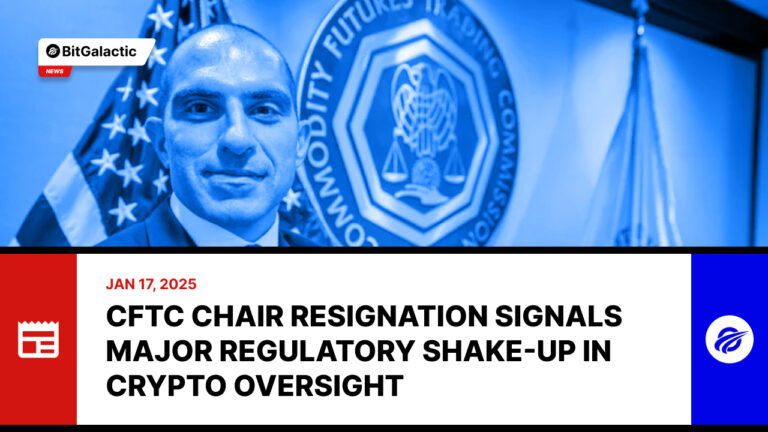CFTC Chair Resignation Signals Major Regulatory Shake-Up in Crypto Oversight.
The departure of top U.S. financial regulators is setting the stage for a potential reshaping of crypto oversight as a new administration takes the reins. Rostin Behnam, Chair of the Commodity Futures Trading Commission (CFTC), announced plans to step down in February, marking a continuation of the high turnover that often accompanies political transitions. This could give President-elect Donald Trump an opportunity to build a regulatory team aligned with his pro-crypto campaign rhetoric.
A Broader Transition in Financial Regulation
The turnover includes prominent figures such as SEC Chair Gary Gensler, Federal Reserve Vice Chair Michael Barr, and FDIC Chair Martin Gruenberg. While these resignations follow traditional pre-administration changes, their collective timing could catalyze significant policy shifts in the crypto space.
CFTC’s Role in the Crypto Landscape
Behnam’s resignation leaves a key position open in the CFTC, which has played a pivotal role in regulating commodities and derivatives markets, including aspects of cryptocurrency. Industry insiders speculate that Brian Quintenz, a crypto-friendly figure and former commissioner, is a leading contender to fill the role.
The CFTC has historically been viewed as more lenient toward the crypto industry than the Securities and Exchange Commission (SEC). However, this perception has been tempered by lawsuits targeting alleged misconduct within the sector. A recent effort by Congress to clarify the agency’s jurisdiction, dubbed the FIT 21 bill, highlighted the CFTC’s potential as the primary crypto watchdog, though the bill stalled in the Senate.
SEC Leadership and Crypto Controversy
SEC Chair Gary Gensler, known for his stringent stance on crypto enforcement, also plans to step down. Under Gensler’s leadership, the SEC initiated a wave of legal actions against major players like Coinbase and Binance. While his departure has been celebrated by some industry stakeholders, his tenure underscores ongoing tensions between regulators and crypto firms.
Trump’s nominee for the SEC, Paul Atkins, brings substantial ties to the crypto ecosystem, raising speculation that the agency’s approach could soften under his leadership. Atkins’ involvement with organizations like The Digital Chamber and Securitize signals a potential pivot toward fostering innovation while maintaining investor protection.
Federal Reserve and FDIC Changes
The Federal Reserve and FDIC are also experiencing leadership transitions. Michael Barr, a key regulator at the Fed, is stepping down amidst concerns about the agency’s alleged role in “debanking” crypto firms. Meanwhile, FDIC Chair Martin Gruenberg’s resignation follows accusations of creating a hostile workplace environment. Both moves are likely to influence how these agencies interact with the crypto sector going forward.
BitGalactic Insight: What’s Next for Crypto?
From BitGalactic’s perspective, these regulatory shifts represent a double-edged sword for the crypto industry. On one hand, Trump’s administration may usher in more crypto-friendly policies, promoting innovation and investment. On the other, the absence of clear, bipartisan frameworks like FIT 21 leaves the industry vulnerable to continued uncertainty and fragmentation.
As lawmakers gear up to revisit major crypto legislation during Trump’s first 100 days, the industry’s fate will hinge on whether these new appointees can balance fostering innovation with safeguarding the financial system. The next chapter in U.S. crypto regulation could shape global trends for years to come.
Share this post


